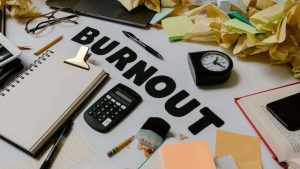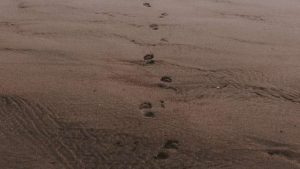“The privilege of a lifetime is to become who you truly are.”Carl Jung. Have you ever thought about how you might feel if you didn’t have any problems? What about being able to pay no attention to what others think about you? Do you want to understand how to make decisions that work for you? The secret to living like that is knowing yourself and your worth. Let’s uncover the connection between knowing yourself, self-love, independence, and decision-making. Then, we will talk about some tools to know yourself. Know yourself and self-love When you know yourself and know your worth, you practice self-love. Think about it. Imagine that you are holding a $100.00 bill. You can do whatever you want to it, except tear it, and it will keep its purchasing power in this instant. We all have to face life challenges. Nonetheless, our value keeps the same. How can we fight against those challenges without suffering? The answer is loving yourself. When you know yourself, you can tell what you like/dislike about you. You can ask yourself and understand why you like/dislike what you like/dislike about you. Once you comprehend that labeling parts of you as good or bad is pointless, you accept and love yourself as you are. That understanding opens a myriad of options. In a way, it gives you the flexibility to use everything in you to interact with the world. For example, someone who talks a lot can invest that energy into lecturing or doing something that requires talking a lot. You just have to accept it to figure out what you can do with it. Know yourself and be independent According to the dictionary, independence means “not [being] influenced or controlled by others in matters of opinion, conduct, etc.; thinking or acting for oneself.” In other words, we are independent when we can think for ourselves or follow our criteria. When you know yourself and know your worth, you can feel what works for you. It doesn’t matter who tells us what, we will follow whatever is good for us. Someone who feels empathy might enjoy any activity that involves interacting with other human beings. That very same person might feel bored doing anything logical and rigid. Every human being has their gifts, talents, skills, and strengths. We just have to understand them and use them. Know yourself and decision-making When you know yourself, you get a clear north to follow. In that journey, you have to choose between many paths. Which one gets you closer to your north? What’s your north? Why is that? What does it make you think that’s your north? When you know yourself and know your worth, you are more confident. You know your limits. Because you do, you understand the next step to expand what you can do. In other words, you grow, you develop yourself. Knowing yourself means you won’t have to feel hesitation ever again. Once any situation appears in front of you, it will be like a movie you watch. You are the observer who watches how your mind perceives everything “outside” you. From that serenity, you will be able to respond to the situation in front of you calmly, instead of reacting with surprise, fear, anger, sadness, disgust, or happiness. It doesn’t mean that you will control your emotions. It is more about flowing with them. Think of emotions as the water in the sea under your surfboard and you. You want to feel the water of the sea. In other words, you want to feel the emotions flowing through your body. You want that because emotions send information to your mind. That’s how you make good decisions: listening to your heart. You first listen to your heart and then think about the situation you want to solve. What decision will create stronger bonds with the people around you? You can find the right answer to that question after knowing yourself and understanding your worth. 5 Tools to know yourself Now that you know why knowing yourself is significant, you will want to do something about it, right? How can anyone know who they are? Fortunately, there are many ways to create a good relationship with oneself. We will only mention 5 of them. Meditation There are many meditation techniques you can try. If you don’t know how to meditate, you can start with guided meditations or simply find a tranquil place you like, find comfort, close your eyes, and pay attention to your breathing. Thoughts will come and go. Just watch them and avoid any judgment. Just watch. Do this as much as you like. Try doing it for 30min, and then see if you can last any longer. Enjoy. Asking Yes, asking, but asking what? Exactly, asking. That’s good. We can ask many questions. If you don’t know where to start, why don’t you try this question: Who am I? This question will entertain you for life, literally. Nobody has been able to answer that question. Can you do that? If you answered that question and felt like you could explain it to other people, you would have done an amazing task, one of a kind. Everybody would have remembered you! Why? Because nobody has been able to answer that question. Well, some people came up with an answer, but people couldn’t express it because it was beyond words. One has to experience it to understand what it means. Yet, that doesn’t mean asking Who am I? is pointless. It will drive you on a journey where you get to know yourself. Lifetime If we draw a horizontal line and say that present is in the middle of that line, then whatever is behind is the past, and whatever is ahead is the future. Can you place on that line what you did and what you want to do with your life from today and forward? Accounting into past events and how you managed them will help you identify patterns. Every






